As the global community continues to push the environmental sustainability agenda given the threat of climate change, experts have highlighted ways African countries can participate for the good of the continent.
The earth’s temperature has continued to rise as a result of human activities, specifically with the burning of coal, oil, gas and other fossil fuels that produce carbon dioxide since the industrial revolution which began in the 18th century and also deforestation.
Join our WhatsApp ChannelThese actions, as studies have shown, led to rise in carbon dioxide which make up majority of greenhouse gases that warm up the atmosphere causing climate change that manifests in forms of extreme weather conditions including severe heatwaves, heavy downpour, flooding and drought among others.
At the forefront of the global agenda is how to reverse this ugly trend by reducing carbon footprints with measures like transition to cleaner form of energy, use of renewable energy sources, and climate adaptation measures among others.
Prime Business Africa reports that at the maiden edition of Asharami Square, an initiative of the Sahara Group, themed ‘Carbon Footprints and the African Narratives’, experts spoke on the approach African countries can adopt in energy transition and contribute to climate stability in a way that addresses their specific context.
In her keynote speech at the event held on Monday, 24 June in Lagos, Ford Foundation’s Director, West Africa region, Dr ChiChi Aniagolu-Okoye, said narratives about sustainability in Africa must focus not just on the challenges but in opportunities that the moment presents for the continent.
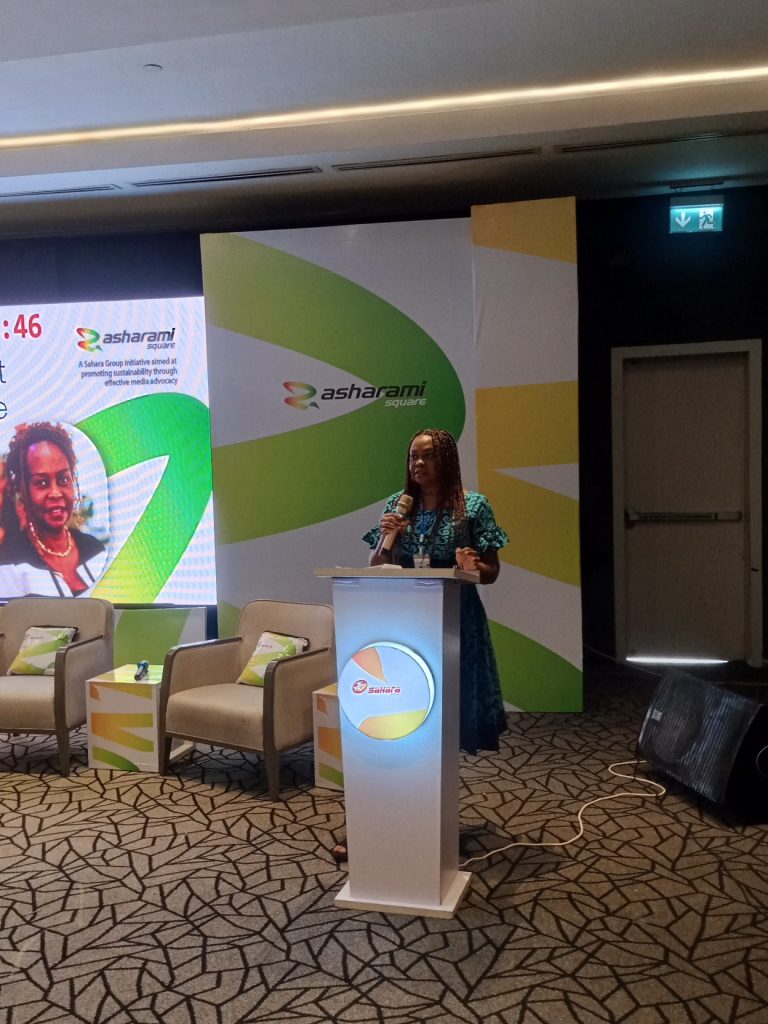
Dr Aniagolu-Okoye said even though the whole world is focusing on reducing carbon emission, it should not be the priority of Africa which contributes only 4 per cent.
She, however, stated that the fact that Africa is contributing very little to climate change does not mean the continent is not affected and shouldn’t do anything.
“On the contrary, the continent is experiencing the consequences of climate change just like everybody else. Crops are failing, the weather is changing, water is drying up and so forth,” she stated.
She argued that the challenge of Africa in the energy transition conversation is more of justice issues, and the task should be to identify and highlight them in narratives as they are hardly brought to the table in international conversation.
Aniagolu-Okoye said the narrative around climate change and energy transition in Africa should centre around three main issues which include justice, resilience and adaptation, and participating in the green economy.
Speaking on climate justice, the development expert criticized the mode of divestment by International Oil Companies (IOCs) in Nigeria and other parts of Africa, from onshore to offshore or completely from the countries without sincerely addressing the impact of their oil extraction activities.
“We know that climate change is affecting everything, but there is a need for justice. And the first issue I want to talk about in the justice question is the divestment issue. The world has been calling on oil companies to divest from fossil fuel extraction as a way to reduce carbon emissions. And in Nigeria and elsewhere, oil companies are divesting from onshore oil production to offshore or completely from the country. And they have been applauded globally. But what is little known is that they are leaving in their wake a trade of environmental and ecological devastation and that have destroyed the livelihoods of extractive communities.”
READ ALSO:
She said the narrative should be to highlight these “ecological devastations as part of the climate conversation, and ensure that these companies are held accountable for the environmental damage they have caused, as part of the conversations on mitigation.”
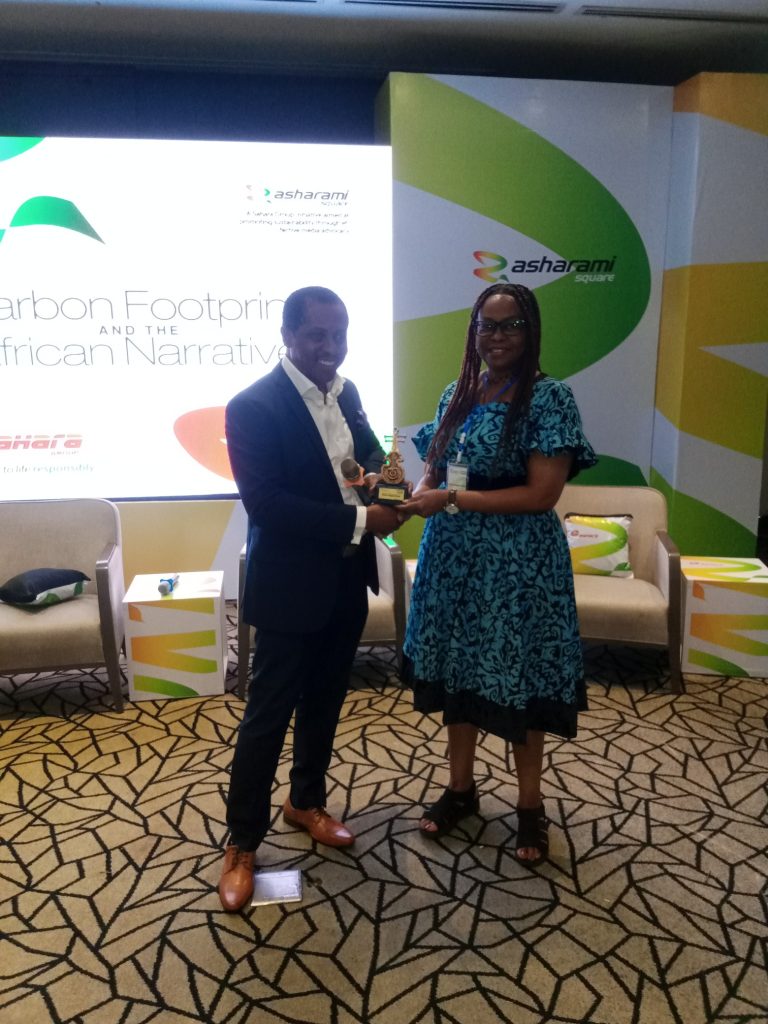
While clarifying that she is not against divestment by IOCs, Aniagolu-Okoye said there is a need to address issues of devastation of communities in Africa where extraction activities had taken place, like in the Niger Delta region in Nigeria.
She further pointed out that there is a transition from fossil fuel to solid mineral extraction and warned that if care is not taken, the challenges of ecological disaster associated with fossil fuel extraction will replicate in solid minerals, citing a case of what is happening in Zamfara State in Nigeria.
She also underscored the need for every conversation about the impact of climate change in Africa to recognize the dynamics of resource plunder and consequence of social ecological destruction, adding that nowhere in the world feels the impact of climate change more than Africa.
On the way forward, she called on African governments to develop policies and put in place, structures to protect communities from exploitation and ensure they benefit from the mining taking place in the areas.
She noted that the call for carbon reduction in Africa is a nuanced issue that should be addressed through careful planning because the continent still needs to provide energy access to million of the population and most of the countries’ economies are powered with fossil fuel and solid minerals resources to finance development. “Our narrative therefore, must continue to point out that there is no easy work and Africa requires international support, careful planning, and implementation of good policies to navigate and address the climate question,” she added.
She called on the media to be at the fore front of driving the sustainability narrative in the continent.
The Ford Foundation West Africa regional director applauded Sahara Group for organising the programme at this point in the world history that the understanding of sustainability is critical, especially in Africa to create narratives that properly capture the continent’s context.
Asharami Square is an initiative of the Sahara Group, aimed at promoting sustainability through effective media advocacy.
In her presentation, Director, Governance and Sustainability, Sahara Group, Ejiro Gray, re-echoed the fact that despite relatively having lower Carbon (CO2) emission, Africa is heavily impacted by climate change.
According to her, while climate change may be blamed for environmental disasters in the continent, irresponsibility on the part of people also aggravates it, thereby impacting their ability to adapt and mitigate the effects.
Ejiro observed that in conversations about sustainability in Africa the focus is always about environmental issues usually influenced by Western narrative but there is a lot more than that.
According to her, while highlighting environmental issues in climate change discourse in Africa are important, the socioeconomic and governance issues are more important.
“For us in Africa while the environmental issues are equally important. I think the socio economic and governance issues are even more important. And these all contribute to sustainability or determine how sustainable a society and people will be,” Ejiro stated.
“So whilst the environment is important, let’s understand that if we deal with the socio economic issues if we deal with the governance issues it will be easier to deal with environmental issues,” she added.
She further stated that while the energy sector is being tagged the enemy of environmental sustainability, the real enemy is the actual CO2 emission and therefore called for the adoption of measures to mitigate carbon emission.
Highlighting statistics, Ejiro stated that energy demand in Africa is projected to keep rising, driven by industrialisation, population growth and urbanisation.
To meet the energy demand in the light of sustainability, she said it would require harnessing the natural resources and also gradually integrating renewable sources into the energy mix.
She however, noted that with the level of development that the continent require and the speed at which it is needed to happen, cannot be effectively driven by renewable energy and “so, while renewable energy technology is advancing, it’s important that we’re still able to drive our development using our own resources.”
She said instead of totally dismissing the use of fossil fuel, some technologies can be adopted to decarbonize or reduce carbon emissions, “so that at the end of the day, you have a win win situation. One, we’re able to utilize our resources, and also be able to manage some of the negative effects and the impact on our environment. We must be conscious of it,” she stated.
Speaking on the deployment of Africa’s natural resources to drive development and energy security, the sustainability advocate called for increased investment in gas which offers a cleaner form of energy since many countries in the continent have it in abundance.
She highlighted some of the activities of Sahara Group in sustainability journey. According to her, some of them include increased use of renewables, gas commercialisation. Speaking on the use of gas, she said the company developed gas infrastructure, especially LNG and LPG. She said the company draws from it to power plant that supplies steady electricity to host community at its OML 148 located in Edo State.
Speaking on the topic, ‘Decarbonising Africa’s Upstream Operations, Wole Ajeigbe, Group Project Manager, Asharami Energy, a subsidiary of Sahara Group, said the indigenous oil firm has for years, keyed into the sustainability agenda.
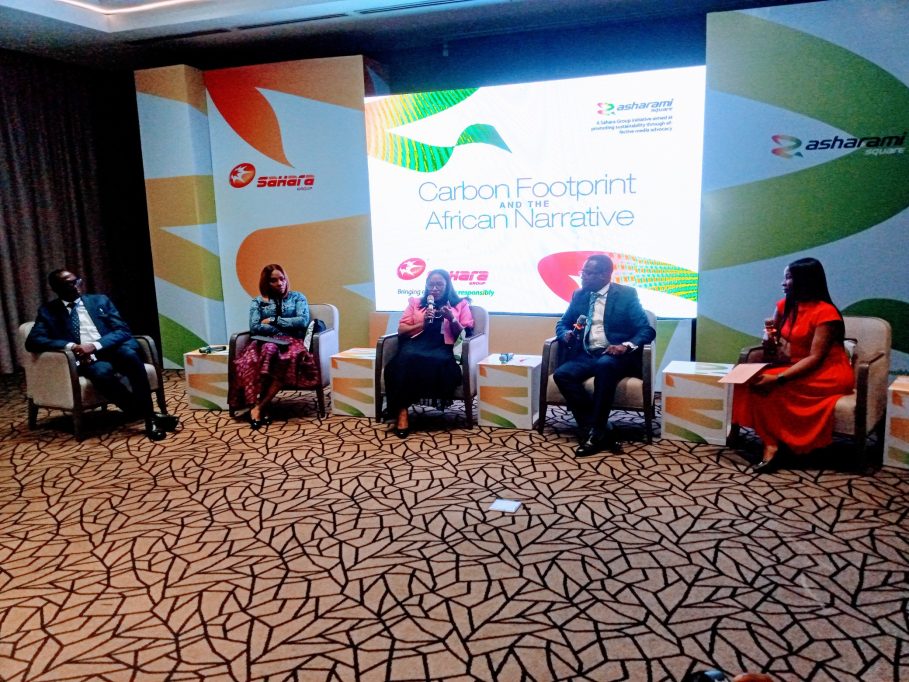
Ajeigbe averred that energy demand in the continent would continue to grow in the next 20 years and with increased use of oil and gas, there is a need to decarbonize the upstream sector to enhance sustainability.
According to him, oil will rise by 30 per cent, natural gas 24 per cent, renewables 18.5 per cent biomas 17 per cent, nuclear sources 1.6 per cent and coal 8.3 per cent in 2040.
He listed some pathways towards decarbonization in the upstream which include creating an enabling environment to stimulate investment, access available capital pool and attract and capabilities needed fo energy future.
Victor Ezeja is a passionate journalist with seven years of experience writing on economy, politics and energy. He holds a Master's degree in Mass Communication.






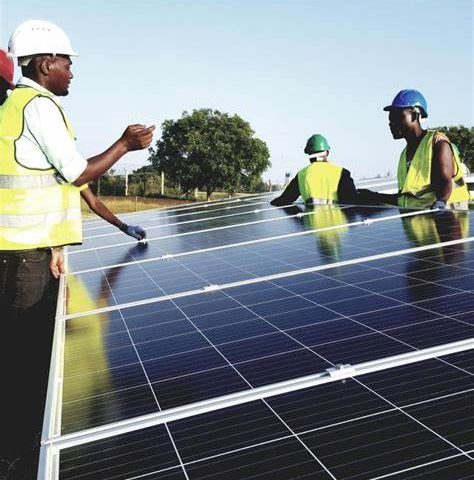
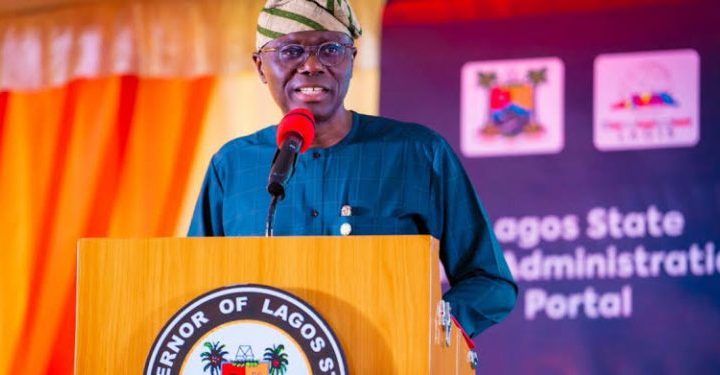








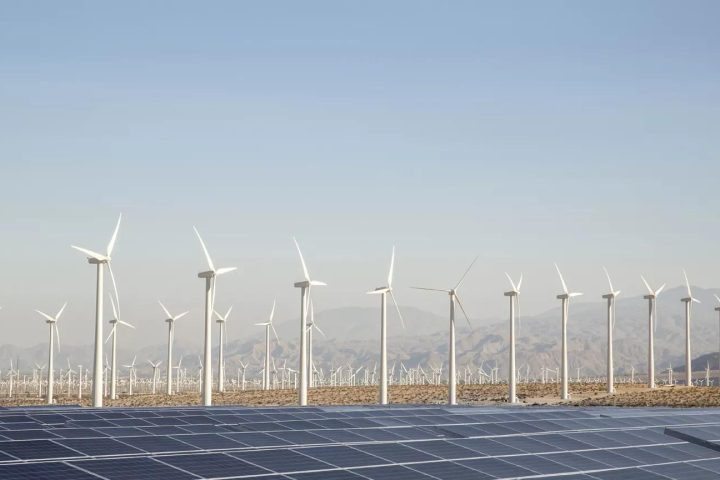


Follow Us